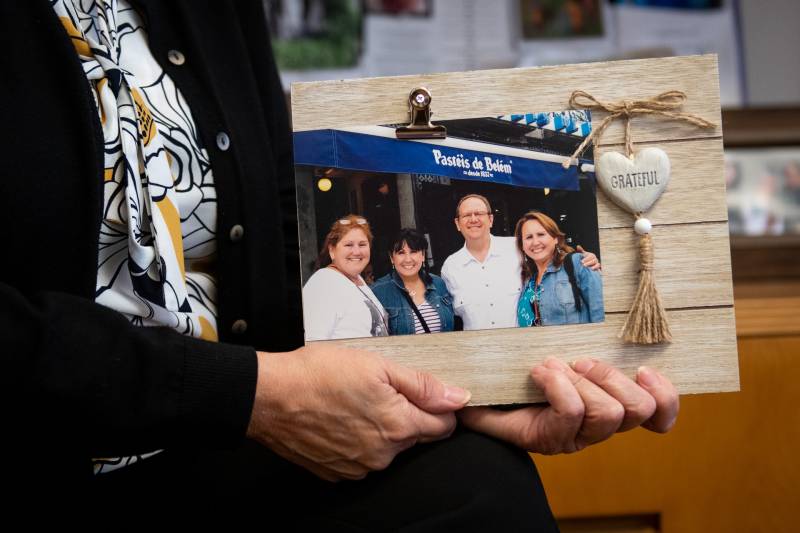A new federal program offering help with funeral expenses to families who have lost loved ones to COVID-19 may not reach some of those who need it most, advocates say. They believe many eligible people, particularly in California’s hard-hit Latino communities, might be reluctant to apply out of fear their information will be shared with immigration authorities.
FEMA's COVID-19 Funeral Assistance Phone Message Could Scare Off Applicants Who Need Help Most, Advocates Say

Starting this week, U.S. citizens and some lawful immigrants can apply to the Federal Emergency Management Agency for reimbursements of up to $9,000 for each COVID-related funeral.
But when applicants call an agency phone line to request the aid, they first hear a prerecorded message on eligibility requirements warning that the information they provide may be shared with the U.S. Department of Homeland Security, along with other government agencies.
“FEMA may share your information with these partners to make sure you receive all disaster assistance available to you, prevent duplicating benefits or to prevent future disaster losses,” states the COVID-19 Funeral Assistance helpline.
Potential applicants from immigrant families who get that message before they are able to speak with an agency representative will likely hang up, even if they are eligible for the funds, predicts Maritza Maldonado, who heads a nonprofit serving a largely Latino neighborhood in East San Jose. Her group, Amigos de Guadalupe Center for Justice and Empowerment, has helped local families, including immigrants, pay for coronavirus funerals.
“I just think it was intimidating, it was also scary,” said Maldonado, after listening to the helpline. “The problem is that our folks who need it the most won’t access that [aid], period. People are fearful of the government.”
In California, Latinos are disproportionately dying from the coronavirus. Latinos account for nearly half of all COVID-19 deaths in the state, even though they represent only 39% of the population, according to California Department of Public Health figures.
Funeral expenses can add up to more than $10,000, often prompting relatives struggling to pay those costs to seek donations through community groups or on crowd-funding social media sites.
The automated FEMA message also advises applicants that they must authorize the agency to obtain their personal information from financial and other institutions. For Maldonado, who lost a sister to the coronavirus last May, that raises another red flag about privacy concerns.
“I was born in this country … and I would never do anything like this, or tell my nieces who buried their mother to even attempt to do this,” said Maldonado, 60. “I think it violates your own freedoms.”
Undocumented immigrants and those who hold temporary visas, such as for work or study in the U.S., are not eligible for FEMA’s funeral assistance.
The agency did not directly respond to a request for comment on concerns that its prerecorded message could discourage eligible applicants from requesting the funds. But Rebecca Kelly, a FEMA spokesperson, said the most important goal of the program is to help those who lost someone due to COVID-19, which she called a “very personal and emotional issue.”
“Using a call center guarantees that applicants already experiencing loss and grief can speak to people who are specifically trained to walk them through the application process and ensure they know the next steps to take,” Kelly said in an email.
FEMA’s COVID-19 Funeral Assistance program has had a rocky start for other reasons as well. When the application period began Monday morning, thousands of people flooded the helpline, causing technical issues and delaying some callers from reaching a representative, the agency said. The only way to apply for the aid is by phone; online requests are not accepted.
A spokesperson for Rep. Barbara Lee, D-Oakland, who pushed for the FEMA funeral assistance benefit, did not immediately comment on concerns over the agency’s prerecorded message, but said Lee’s office is looking into how the agency is addressing technical challenges.